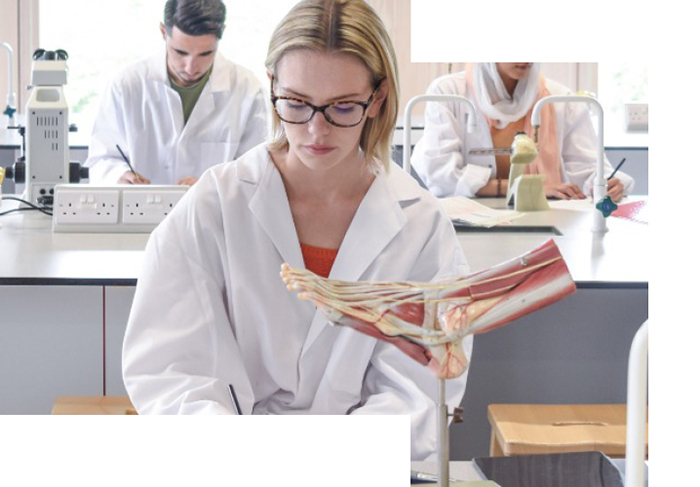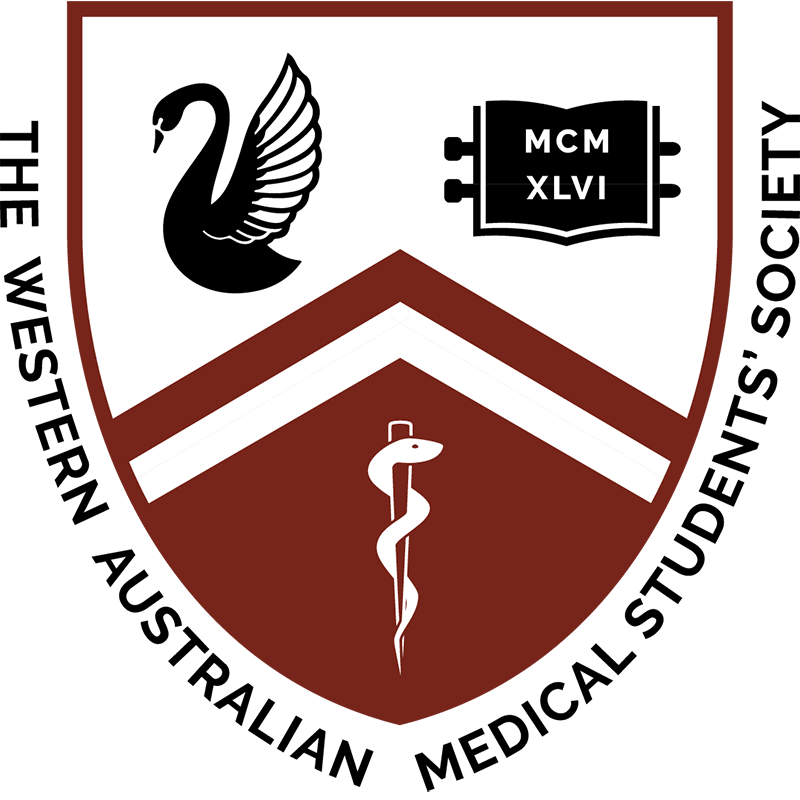
Alumni, Community and Mentoring
Medical Education Unit
The Medical Education Unit (MEU) has a mission to lead and support: curriculum implementation, continuous educational improvement, teaching, research, service, medical education accreditation requirements and professional learning related to the educational aspects of the MD program.
This Unit is a group of experts for the Medical School, with whom staff can consult for educational design, assessment, evaluation, peer teaching/ review and educational innovation and research.

The UWA Medical School MD Mentoring Programs
Most doctors develop supports to help them deal with the stresses of the job, including developing mentoring relationships. Mentoring occurs when one individual with knowledge and experience, assists with the learning and development of another.
Upon reflection, most people can recall a time when someone offered them this kind of assistance. Many people can point to a mentoring relationship that has had a significant positive impact on their lives.
UWA Medical School has two mentoring programs for medical student mentoring.
Each program has a different emphasis and requirements.
Clinician-Student Mentoring:
UWA is the only Australian medical school to have a longitudinal mentoring program whereby all medical students have a qualified health profession as a clinical mentor involved in the student’s professional development for the duration of the course.
Your Clinical mentor has an important role in providing you with formative feedback and identifying if you need assistance in the personal and professional development aspects of the course.
Student MeDMentor Program:
In collaboration with the Western Australian Medical Students Society (WAMSS) and the Unimentor program, UWA Medical School has expanded the UWA Student Services UniMentor program specifically for medical students.
The Student MeDMentoring runs parallel to the Clinician-Student mentoring.
The aim of both mentoring programs are to act as frameworks providing support and resources for students to develop the professional skills and knowledge that they will need in their journey to becoming a medical doctor and for the remainder of their professional life.
Resources:
2023 Clinician-Student MD Mentoring Mentor Guidebook [PDF, 1,616KB]
2023 Clinician-Student MD Mentoring Mentee Guidebook [PDF, 1,559KB]
2023 Student-Student MD Mentoring Guidebook [PDF, 1,271KB]
Department of Health - Introduction to Mentoring flyer [PDF, 253KB]
Australian Medical Students Association - Keeping Your Grass Greener [15,905KB] (Refer to pg. 10 - 13 for mentoring information)
MD Clinical Mentor information evening
Held annually (usually in September/October each year). This session is open to both new and experienced mentors and seeks to discuss the role of a Mentor, as well as give you an opportunity to ask any questions or clarify any requirements of the program. Mentors are emailed details of the evening and a Certificate of Attendance can be provided to participants.
For more information, contact the Professional Development and Mentorship Academic Services Officer on [email protected] or +61 8 6457 1886.
- Your role as a student
-
You can approach your mentor to discuss issues and ideas, and complete assigned tasks, and even ask for feedback or advice to clarify situations.
The mentor's questions and comments may help you see another perspective, consider other options, and review your plans or actions.
Whatever the matter discussed, it is you the student who must make decisions, or take the required action within professional, University and hospital guidelines.
- Minimum requirements
-
1. Meet with your mentor at least once
Meet with your mentor at least once (twice in Year 3) to discuss your personal and professional development. It cannot be overstated that you will benefit from meeting with your mentor more frequently, as they have a wealth of information and experience to offer which will assist in your development as a clinician.
2. Ensure that your Interview Record Sheets are submitted to the School
The deadlines for submission of Interview Record Sheets are:
- Year 1 MD students - the first Monday of November.
- Year 2 MD students - the first Monday of September.
- Year 3 MD students - the first Monday of September.
- Year 4 MD students - the first Monday of November.
Your form must be submitted to the mentoring administrator.
A tip for ensuring your interview record is submitted on time
It is the student's responsibility to ensure that the Interview Record Sheet is submitted to the School on time.
If you take a copy of the form to your meeting, you may find it easier to get a signature from your mentor, who can give the form back to you at the same time. This means you can keep a copy and also ensure that your interview record is submitted by the due date.
- Criteria for choosing a mentor
-
The School strongly encourages you to choose your own mentor. Many students have found this leads to a more rewarding experience and it ensures you have a mentor in your preferred area of focus.
When nominating a mentor on your own, please ensure the following criteria are met:
- A medically qualified clinician (not a direct family member), qualified for a minimum of three years.
- A person who is agreeable about meeting you officially for personal and professional development.
- This person must be able to follow the timetable as set out in the PDM Guidebook.
The Western Australian Medical Students' Society (WAMSS)
Since their foundation in 1946, WAMSS has been the peak representative body of UWA medical students.
WAMSS contributes significantly to student events and welfare. Their flagship events include the Annual Medical Dinner, Allied Health, and Red Party.
UWA adjunct and clinical title holder
Adjunct appointments provide a mechanism for The University of Western Australia to recognise suitably qualified and experienced individuals who make a significant contribution to the academic activities of their Schools.
There are two categories of adjunct – those who are actively engaged in clinical practice (Clinical titles) and those who are non-clinical (Adjunct titles).
Application Process:
To apply for Adjunct status, please complete the Medical School (including Centres) online application form and submit electronically, together with the required attachments.
Before submitting the application, please refer to the Adjunct and Clinical Title Holders Guidelines and the University's Policy
Adjunct queries:
General enquiries: [email protected]
Medical School: [email protected]
Centre for Child Health Research: [email protected]
Centre for Medical Research: [email protected]
Volunteer with the Medical School Simulated Patient Program

Throughout the teaching semester and examination period patient volunteers are required so our Doctor of Medicine students in Years 2-4 can learn and be assessed in simulated patient environments. Teaching takes place in small group sessions and can encompass history taking or specific physical examination. All sessions are conducted under the supervision of a tutoring doctor and no invasive procedures are undertaken.
- Requirement: In a mock patient environment, the student doctor conducts a history of your simulated health condition or concern for them to diagnose and advise treatment. Patient scenarios are matched to the individual gender and age of volunteers.
- Type of volunteer: Male and female, 18 to 70 years of age.
- Commitment: A session is four hours
- Timing: May November
- Contact: Ms Peta Gjedsted (Academic Services Officer, Medical School) detailing your age, gender, availability and contact phone number.
Medical Humanities Network
The UWA Medical Humanities Network is a University-wide network with international links that provides opportunities for educators and researchers engaged in medicine, allied health sciences and dentistry, and those in the humanities, arts, music, psychology and social sciences to exchange ideas, share information and opportunities, and establish collaborative partnerships.
Medical humanities is an expanding field. From undergraduate teaching, to research, clinical practice and community engagement, a number of new and exciting programs are being developed worldwide. Humanities and social sciences have a key role in understanding the human side of medicine, health and wellbeing. To learn more or join the network, contact Associate Professor Nahal Mavaddat.



































